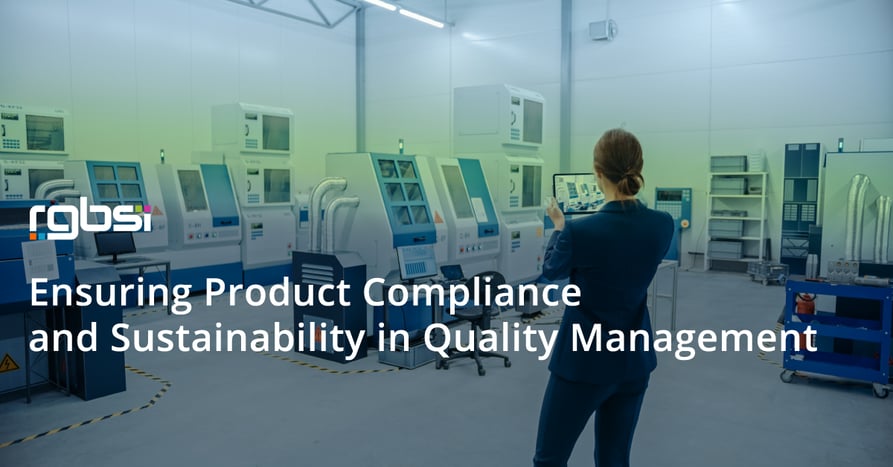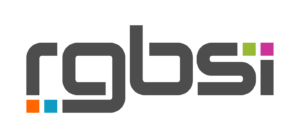
Companies worldwide are increasingly concerned about sustainability, particularly with their supply chain activities. It is expected for organizations worldwide to have a sustainability strategy as part of their value proposition. Moreover, product compliance is a complicated game as a forerunner to the sustainability of quality management, given all existing standards, rules, and directives.
This article will explore the importance of compliance and provide ways to ensure product compliance and sustainability in quality management.
Quality vs. Compliance vs. Sustainability
There is a distinction between the terms "quality", "compliance", and "sustainable" in the context of a product. The bottom line, though, is that producers must deliver items that meet all three criteria. Essentially,
- The ability of a product to deliver the desired results gets referred to as quality.
- A product's conformance to regulations and requirements is referred to as compliance.
- A product created with preserving the environment and public health in mind is sustainability.
Regulatory Requirements & Directives for Product Compliance & Sustainability
To manufacture a high-quality product that meets client criteria, suppliers must meet regulatory requirements. Organizations in various industries are impacted by multiple laws, regulations, current best practices, and standards.
However, there are two major categories of regulations that any industrial and manufacturing intensive company should comply with: Material and Substance Regulations and Waste and Environment Regulations.
With that, here are some examples of regulatory bodies in terms of the two major categories:
- Material & Substance Reporting: IMDS (International Material Data System), CDX (Central Data Exchange), REACH (Registration Evaluation Authorization & Restriction of Chemical Substances), RoHS (Restriction of Hazardous Substances), and Conflict Minerals.
- Waste & Environment: Waste Management (European Regulations), WEEE (Waste Electrical and Electronic Equipment), ELV (End of Life Vehicle), Battery Directives, Prop 65 (California Proposition 65), and Montreal Protocol.
In addition, a company’s product quality and compliance department must provide comprehensive quality assurance and quality control services for a wide range of products.
Here are some regulatory bodies in terms of sustainability compliance:
- Sustainability Requirements: CDP (Carbon Disclosure Program), ESOS (Energy Saving Opportunity Scheme), TSCA (Toxic Substance Control Act), CAA CWA (Clean Air Act & Clean Water Act), EA (Environment Act 1995), EPR (Environmental Permitting Regulation), WFD (Waste Framework Directive), CCA (Climate Change Act 2008)
Factors that Play a Key Role in Product Compliance and Sustainability
There are 4 major factors that have a key role in product compliance and sustainability, listed as follows:
- Regulations: Regulations are in place to manufacture a high-quality product that also fits the customer's needs. Thus, all firms must adhere to specific laws and regulations regardless of industry or size as part of their operations.
- Stakeholders: Company operations are becoming more and more influenced by stakeholders as community citizenship and social responsibility becomes more integrated into business management.
- Market: Consumers are protected by market compliance standards so that they don't get deceived, tricked, or misled by businesses. These compliance requirements likewise safeguard privacy rights.
- Buyer/Customers/End Users: Essentially, having a clear picture of your ideal consumer can help you create product documentation in the future.
Best Practices for Compliance & Sustainability in Quality Management
The following are some of the best practices for compliance and sustainability in quality management.
Build a robust compliance and sustainability program throughout the entire supply chain.
Many businesses lack a thorough awareness of the impact their supply chain has on the environment. Best practices for supplier quality management include inventorying suppliers, identifying the most pressing environmental and social issues they face, and prioritizing activities with them.
Understand applicable directives and regulations.
Organizations must be prepared to respond to local, national, and international regulations and comprehend how they apply to their supply chains as the scope of business increases across continents.
Identify current inefficiencies and address them.
Another best practice is to examine the gaps and inefficiencies in compliance and respond to them promptly after organizations have a comprehensive grasp of the supply chain and applicable legislation.
Use templates for data quality.
Templates identify areas of non-compliance and mitigate the risk of these areas occurring again.
Leverage a Quality Management System to manage many requirements.
It can be challenging to understand and follow new regulations, but if properly read, understood, and upheld, they can help a company improve its brand value and reputation. Compliance with the law is a valuable competitive advantage. Leveraging a quality management system (QMS), such as Empower QLM, can help you keep track of all these with the ability to store and manage supplier data and compliance documents. Companies that have compliance under their belts have a valuable competitive advantage.
Conclusion
Companies must have a clear plan for compliance management considering the rapid changing industry regulations and standards. In the end, organizations are better able to respond to changing regulatory requirements with effective quality management by building encompassing product compliance and sustainability into their overall strategy.
About RGBSI QLM Solutions
Need help with quality audits, compliance & sustainability, PPAP, or other quality areas? At RGBSI, we provide full-service quality lifecycle management (QLM) solutions that optimize manufacturing supply chain initiatives. Organizations within automotive, aerospace, and other engineering segments leverage our expertise to validate, manage, and assess their current processes.
Product Compliance & Sustainability Services
Whether you need support or complete delegation, we have the expertise and the global reach to effectively manage your product compliance & sustainability requirements.
Learn more about product compliance & sustainability services.
Empower QLM Software for Compliance Management
Empower QLM is RGBSI’s proprietary cloud-based QMS that helps automate, drive, monitor, and report compliance requirements.
Learn more about Empower QLM modules.










